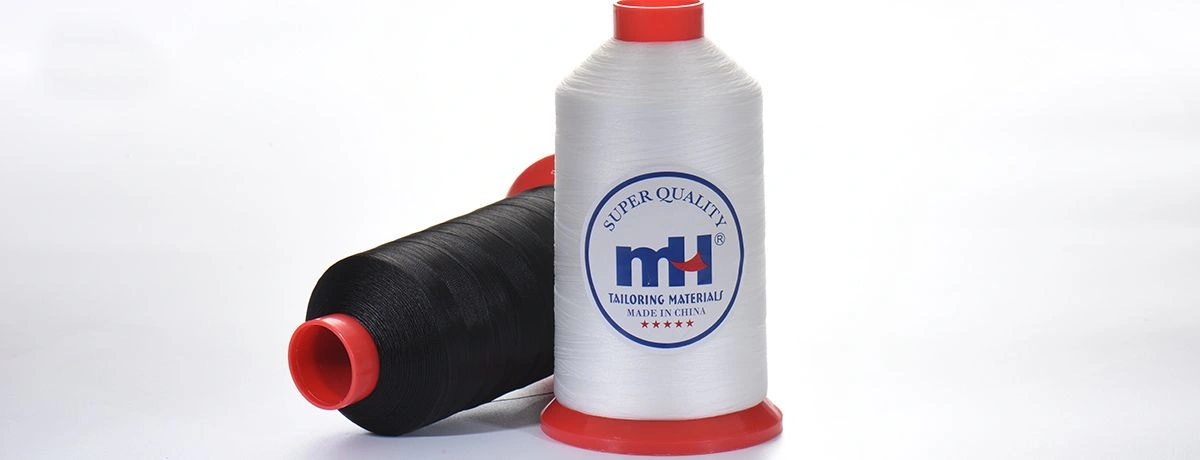Nylon Thread for Sewing: Essential Guide for Manufacturers

Nylon thread stands as one of the most versatile and durable synthetic threads available to garment manufacturers and wholesale operations. Its exceptional strength, elasticity, and resistance to environmental factors make it an indispensable material for industrial sewing applications. Understanding the properties, types, and applications of nylon thread enables manufacturers to make informed decisions that optimize production efficiency and product quality, and to add the appropriate nylon thread to their projects for enhanced durability, strength, or appearance.
What is Nylon Thread
Nylon thread is a synthetic polyamide fiber known for its high tensile strength and flexibility. Manufactured through a chemical process that creates long polymer chains, nylon thread exhibits remarkable durability and consistent performance across various sewing applications. The thread’s molecular structure provides excellent resistance to abrasion, chemicals, and moisture, making it suitable for demanding manufacturing environments.
The manufacturing process involves melting nylon polymer chips and extruding them through spinnerets to create continuous filaments. These filaments are then twisted together to form threads of varying weights and constructions. This controlled production process ensures consistent quality and performance characteristics that meet industrial standards.
Types of Nylon Thread
Nylon 6 Thread
Nylon 6 thread offers excellent dyeability and maintains good strength properties. This type performs well in applications requiring vibrant colors and consistent dye uptake. Manufacturers often choose Nylon 6 for garments where color matching is critical.
Nylon 6.6 Thread
Nylon 6.6 provides higher melting point and superior strength characteristics compared to Nylon 6. This type excels in high-stress applications and environments with elevated temperatures. Industrial manufacturers prefer Nylon 6.6 for heavy-duty sewing operations.
Monofilament Nylon Thread
Single-strand construction characterizes monofilament nylon thread, providing exceptional strength and minimal bulk. This type creates nearly invisible seams and works well for applications requiring discrete stitching.
Multifilament Nylon Thread
Multiple filaments twisted together create this thread type, offering excellent flexibility and smooth operation through sewing machines. Multifilament construction reduces friction and provides consistent stitch quality.
Pros and Cons
Advantages
Nylon thread delivers exceptional strength-to-weight ratio, often exceeding natural fiber alternatives by significant margins. Its use is ideal in applications where high strength and low weight are critical, such as in upholstery, leather goods, and outdoor products.
The thread maintains elasticity under stress, preventing seam breakage in flexible applications. Chemical resistance allows nylon thread to withstand exposure to oils, solvents, and cleaning agents commonly encountered in industrial environments.
Temperature stability enables nylon thread to perform consistently across varying environmental conditions. The thread resists UV degradation better than many natural alternatives, extending product lifespan in outdoor applications. Low moisture absorption prevents strength loss in humid conditions.
Disadvantages
Heat sensitivity can cause melting or degradation at high temperatures, requiring careful selection of pressing and finishing processes. Nylon thread may exhibit poor dyeability compared to natural fibers, limiting color options in certain applications.
Static electricity buildup can occur during high-speed sewing operations, potentially affecting thread handling and stitch quality. The synthetic nature may not provide the aesthetic qualities desired for premium natural fiber garments.
Uses
Garment Manufacturing
Nylon thread is recommended for producing a range of products such as activewear, swimwear, and performance garments where strength and elasticity are essential. Nylon thread is the recommended choice for products requiring both durability and flexibility. The thread’s resistance to chlorine and saltwater makes it ideal for swimsuit construction. Athletic apparel manufacturers rely on nylon thread for seams that must withstand repeated stretching and washing.
Industrial Applications
Heavy-duty applications such as canvas work, awnings, and outdoor gear benefit from nylon thread’s durability. Bonded nylon thread is commonly used for sewing thick materials such as luggage, handbags, shoes, and vinyl. It is especially suitable for sewing leather and other heavy-duty items due to its high strength and abrasion resistance. The thread performs exceptionally well in automotive upholstery, marine applications, and safety equipment where failure is not acceptable.
Specialty Sewing
Invisible hemming and decorative applications utilize nylon thread’s unique properties. Nylon thread is also commonly used for sewing wallets, where durability and a professional finish are important. Quilting operations often employ nylon thread for its strength and ability to secure multiple fabric layers effectively.
Maximizing Nylon Thread Performance
Proper thread selection requires matching the thread weight and construction to specific application requirements. It is essential to order the correct thread size and type for each application to ensure compatibility with sewing machines and materials. Manufacturers should consider fabric weight, seam stress, and environmental conditions when specifying nylon thread.
Storage conditions significantly impact thread performance. Maintaining appropriate temperature and humidity levels preserves thread integrity and ensures consistent sewing results. It is also important to maintain an adequate stock of nylon thread in various sizes and colors to meet diverse project needs and ensure production continuity. Regular quality testing helps identify any degradation before it affects production.
To find the right nylon thread for their specific needs, manufacturers should review available options in high-strength and bonded nylon threads, considering the requirements of their particular applications. Nylon thread for sewing provides manufacturers with a reliable, high-performance solution for demanding applications. Its combination of strength, elasticity, and environmental resistance makes it an excellent choice for industrial sewing operations. Careful selection of thread type and proper handling techniques ensure optimal results in garment manufacturing and wholesale operations. Keeping thread inventory updated ensures access to the latest options and consistent production quality.
Contact MH
MH offers nylon thread for sewing. Please contact us for more details or inquiries. We're here to help!


